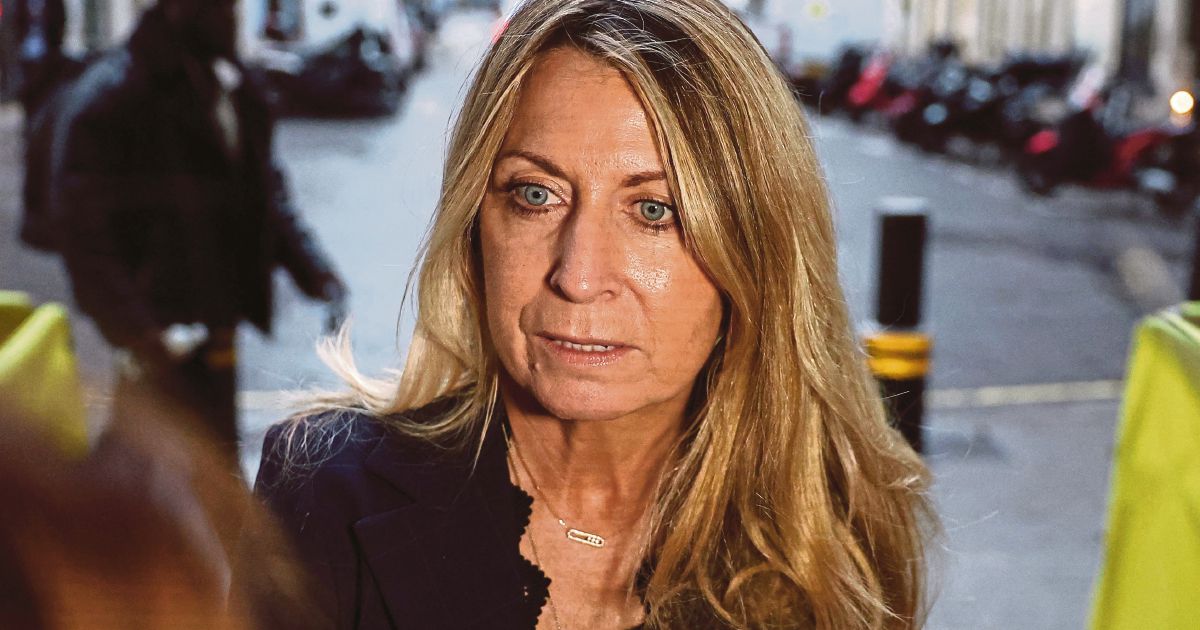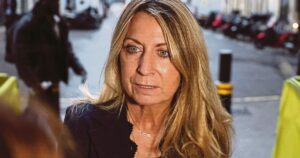Director General Tim Davie and head of news Deborah Turness resigned on Sunday after an internal report by a former adviser that was leaked to the Daily Telegraph cited failings in its coverage of Trump, the Israel-Hamas war and transgender issues.
The resignations have plunged the British institution into its biggest crisis in decades, with the publicly owned broadcaster left without a leader just as it faces a review of the charter that determines its funding.
Even the BBC’s supporters acknowledge that the current licence fee — paid by all television-owning households and a large part of its funding — is increasingly out of date when viewers are turning to the likes of Netflix, YouTube and social media for news and entertainment.
“The most important asset the BBC has is trust, and its reputation is based on the fact that its news provision is impartial, it’s objective, it’s properly sourced and checked,” said John Whittingdale, a Conservative lawmaker and former government minister for media.
“And if viewers and listeners no longer can have confidence in that then that is hugely damaging to the BBC.”
Claire Enders, founder of Enders Analysis, said a new leader should be appointed as soon as possible to “restore the trust there has to be in the BBC for it to survive the charter”.
Established in 1922, the BBC broadcasts in 42 languages.
As well as airing TV and radio, the BBC, which is a client of Reuters, runs the biggest English-language news website in the world.
Last week, The Telegraph published excerpts of the memo written earlier this year by a former standards adviser, Michael Prescott, who listed what he said were editorial failings that revealed institutionalised left-leaning bias among staff.
The most serious was the revelation that a Panorama documentary aired just before the November 2024 US presidential election had spliced together two parts of a Trump speech so he appeared to be encouraging the Capitol Hill riot of Jan 6, 2021.
The documentary was made by an independent production company.
Trump has threatened legal action against the BBC: the president’s lawyers said it must retract its documentary by Nov 14 or face a suit for “no less” than US$1 billion, according to a letter sent on Sunday.
The BBC, which admitted on Monday the editing was an “error of judgment”, said it was considering how to respond.
Prescott, a former Sunday Times political journalist, said he had compiled his memo because he was in “despair” at a lack of action by BBC bosses when failings came to light.
After the memo was published, the corporation seemed paralysed for days, saying only it did not comment on leaked documents.
The BBC’s media correspondent, Katie Razzall, and one of its top political presenters, Nick Robinson, both said they had been told there was a clash with the board, with news executives wanting to publish an apology and the board preventing it.
The two also pointed the finger at board member Robbie Gibb, a spokesman for Theresa May when she was Conservative prime minister, as a critic of the BBC’s news output.
In response, chairman Samir Shah said the board had not blocked an apology but had wanted time to respond.
Shah apologised for the Trump edit but said “the BBC News’ DNA and culture” was impartiality.
Supporters of the broadcaster, including journalists at the Guardian and the Financial Times, and some BBC staff, believe there was an orchestrated right-wing campaign to undermine the corporation, according to public statements.
“This is a crisis created by political and commercial opponents to public service broadcasting and the BBC,” said Diane Coyle, an economist and vice-chair of a former BBC governing body.
Alan Rusbridger, former editor of the Guardian, said many on the BBC board came from a background of finance or business, or had not worked in journalism for a long time.
He said as well as a new director general, the corporation needed stronger governance.
“The board itself is not really well placed to make fine editorial judgments,” he said.
© New Straits Times Press (M) Bhd






